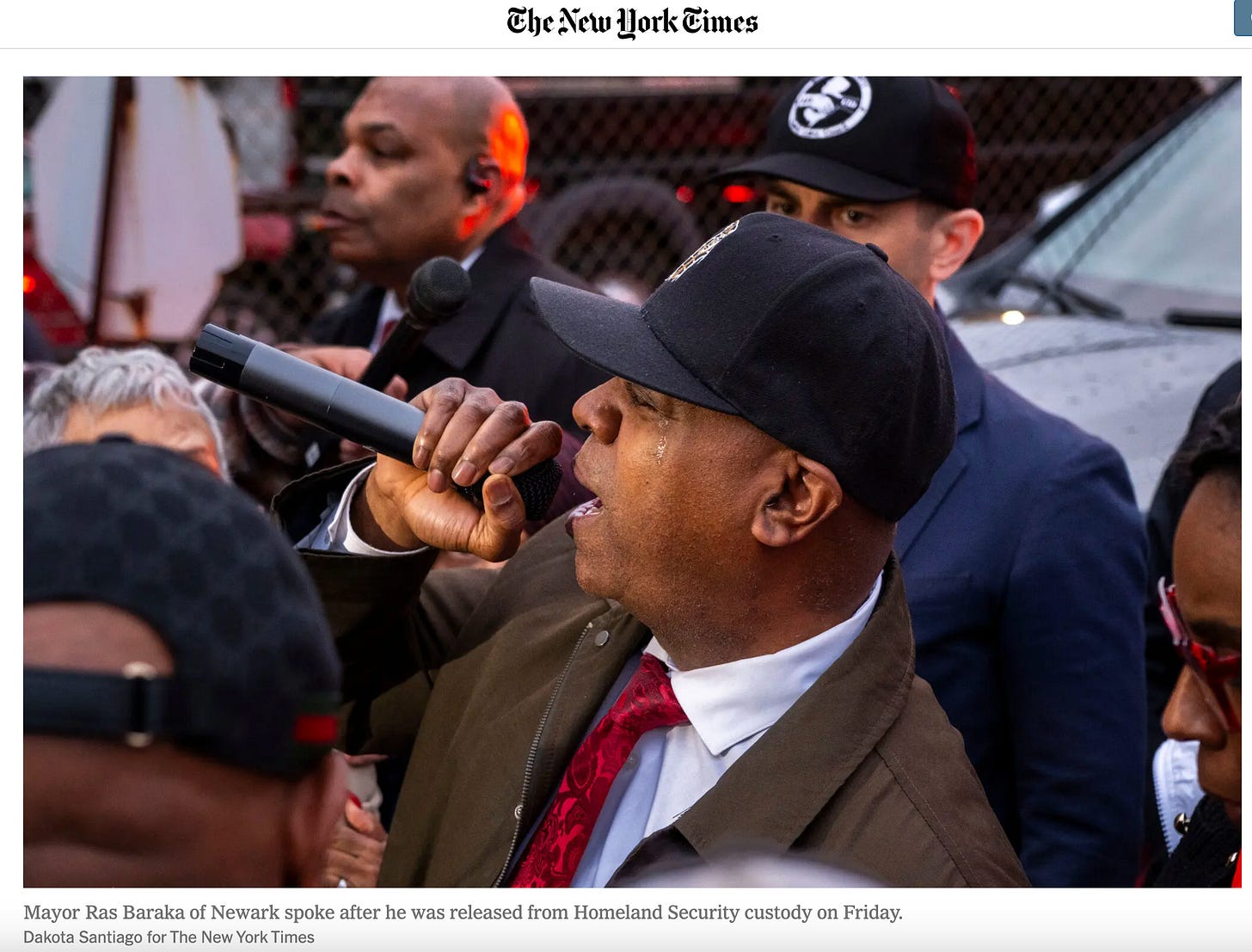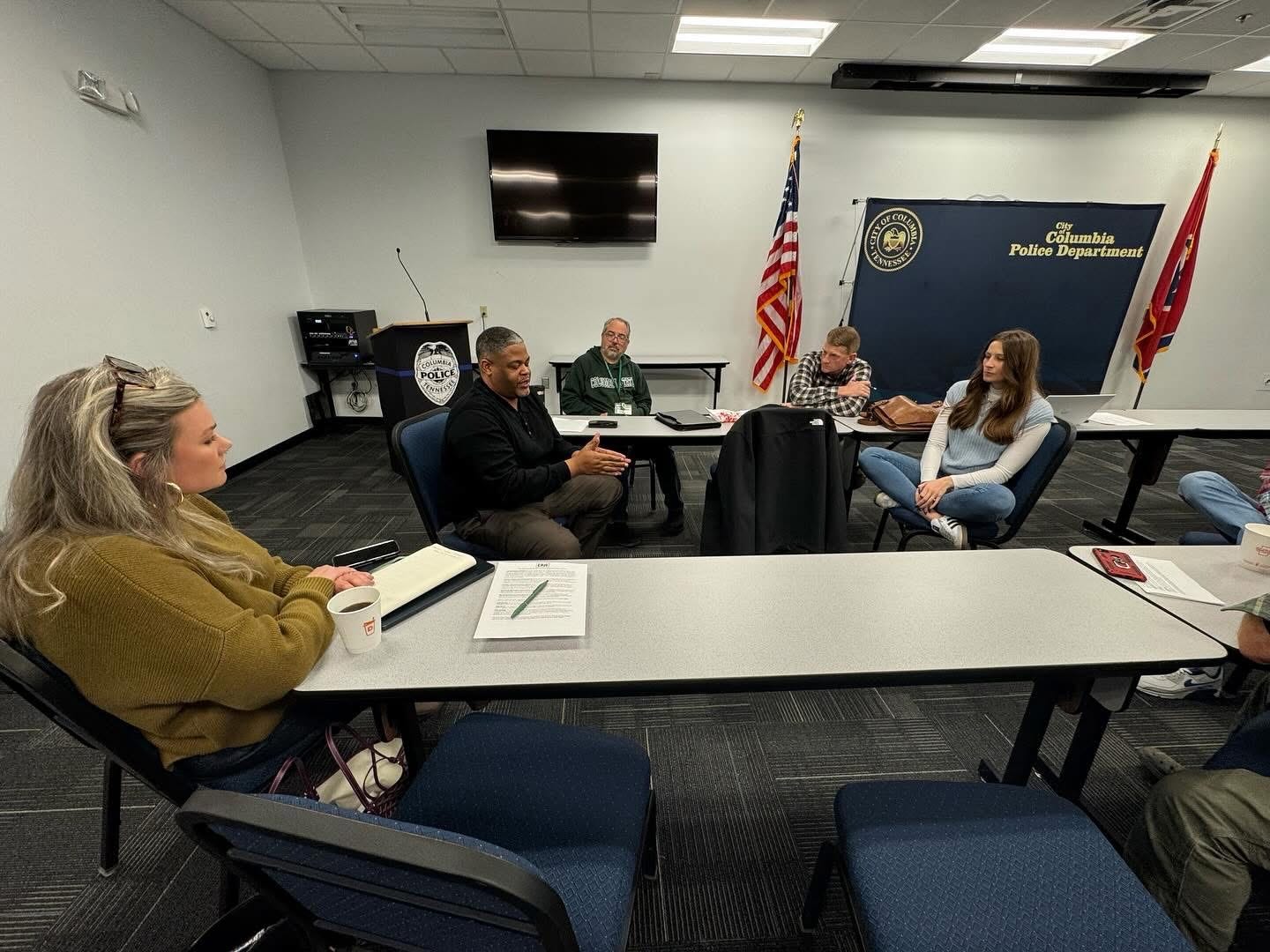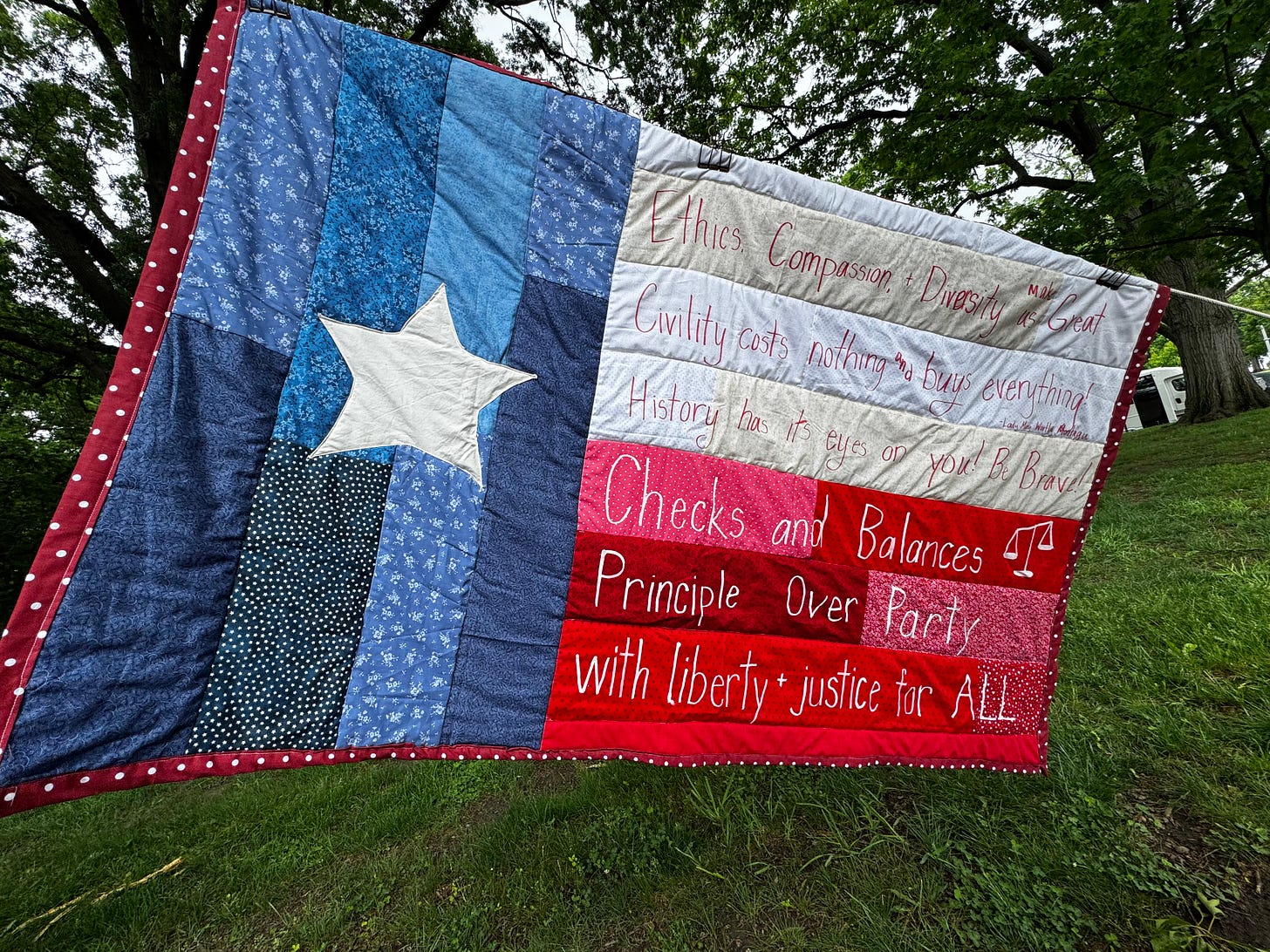America's Future Relies on Rural America
Why small towns must save democracy, and how they can do it
In any big moment in history, activism typically begins in urban areas.
It’s not that city-dwellers care more about politics than others. Federal and state policies are simply felt there first.
I grew up in rural Tennessee. While there are typical tropes against rural voters suggesting they are less educated and more religious, you can find a critical mass of all education levels and religious orientations in both small towns and big cities across the United States.
There is a political strategy to attacking urban centers — people live in closer proximity to one another and the media is more present to cover news stories.
So, ICE raids make a bigger splash in Nashville.
A mayor being arrested makes a bigger splash in Newark.
Political movements gain traction by instigating urban civilians, riding out the news coverage, and creating a sweeping narrative that can even settle into rural Americans’ perception of societal threats coming their way.
In February, I gathered with a group of concerned citizens in our local “Stand Together Fellowship.” We meet several times each year at our city’s police precinct to discuss bridge-building across racial divides.
The group is led by two local pastors, one from a predominately Black church and another from a predominately White church. I find it particularly powerful that these meetings are held in collaboration with our city police force, giving citizens access to local law enforcement to hear their concerns.
After that February meeting, the overwhelming concern rested upon the safety of our Spanish-speaking neighbors. We had seen the headlines and read about ICE raids in larger areas, and the fear was palpable.
Those fears were valid, no doubt. Because a federal political movement had gained traction by instigating urban civilians, and we were all riding along with the news coverage trying to figure out which narrative to adopt for our way of life in rural Tennessee.
I am convinced that Columbia, Tennessee, has one of the most incredible police forces in the state, if not the country. Our officers are kind, accessible, trauma-informed, camera-equipped, and generally good-hearted men and women who risk their lives every day because they care about serving and protecting our local community.
This is exactly what one of our police captains told me over the phone when I called him after the Stand Together Fellowship gathering.
What should we be expecting in our town, Captain? I asked.
I was particularly concerned because Trump had signed an executive order barring churches from serving as sanctuary locations for migrants. Perhaps even more concerning, the Tennessee GOP had just passed a bill making it that local government officials who vote to adopt sanctuary policies can be charged with a Class E felony, punishable by 1 to 6 years in prison and a fine of up to $3,000.
It was during that call that I once again appreciated the unique nature of rural life in America, and felt even more compelled to spur our citizens to action in defense of democracy.
Most of us are not the marchers or yellers.
We are people who live quiet lives, work honest jobs, and show neighborly love.
Most of us are concerned citizens, but we feel paralyzed by the news cycle.
We can’t take off work to fly to Washington, D.C., and we aren’t driven to run for public office.
You all ask me over and over again, What can we do?
I know you’ve called your lawmakers. I know you feel like no one is listening.
So here is a quick how-to guide for local political engagement, inspired by my local government guru and former City Councilman, Danny Coleman.
7 Steps to Organizing Support from Local Government Officials
Gather 5-10 leaders from your vocational community.
There’s no need to cater a meal or create invitations. Just find a table and sit down.
Choose 1-3 talking points about the critical role you play in your community.
Keep your discussion direct and to-the-point. This is a place to collaborate on shared experiences, but is not a therapy session. Come with a few questions to help guide the discussion in a clear direction.Choose 1-3 data points that can arm your local elected officials with clear information.
Most elected officials don’t want to admit that they don’t know the details of different needs in their own communities. Giving them information before they ask for it will help them feel empowered to make knowledgeable decisions.Define a clear ask from your local leaders: A proclamation or a commitment that offers a solution, not just a complaint.
Based off your discussion, what do you need in your community as farmers? As doctors? As teachers? As gig economy workers? As an ethnic group? As small business owners? Keep your ask simple and direct with a clear, measurable outcome: Either your local officials listened, or they ignored your request.Choose 1-3 people to get on the agenda of your local city council and county commission meetings.
Depending on the way your local government is organized, you can access the city- and county-level meetings as constituents. THIS IS WHERE MAGIC HAPPENS.Attend these meetings as a group, with each leader bringing 5-10 advocates along with them.
Filling the room with voters garners an immediate response from elected officials. Where they may have been making decisions before without an audience, the energy has no option but to shift once constituents are clued in and taking part in the regular business of government.
Bonus Points: Invite the press to join you for the meetings you will attend, arming the press with your talking points and clear ask as well.
Local newspapers and media outlets are starved for stories, and are committed to reporting on political engagement from voters. They will appreciate any tips from your group, including the talking points, data points, and the ask you intend to make from your elected officials.
This week, I had the honor of joining Women Building Peace in Washington, D.C., to help deliver quilts to legislators.
Over 60 quilts were pieced together in communities across the United States, with messages on squares originating from all 50 of the United States.
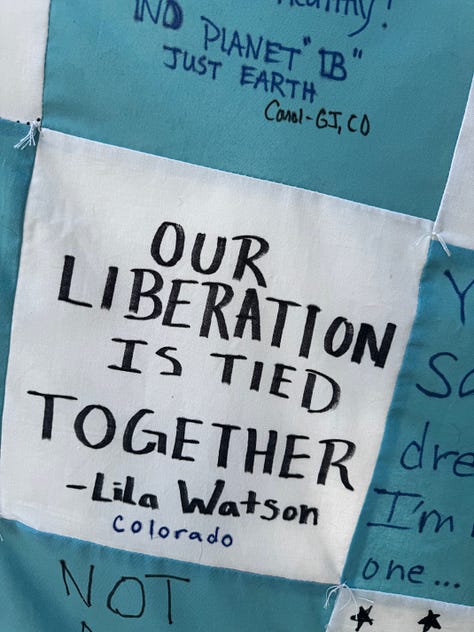
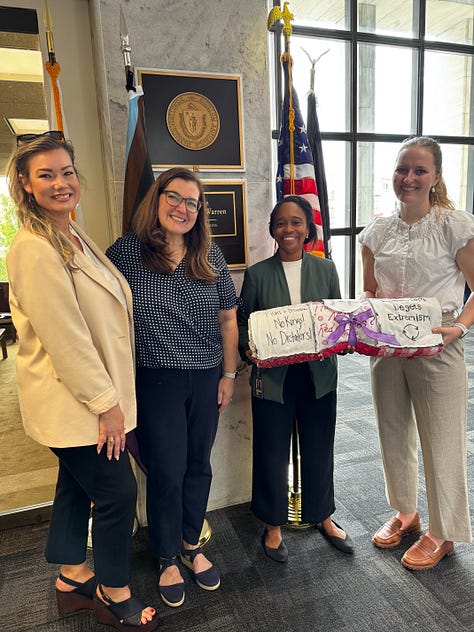
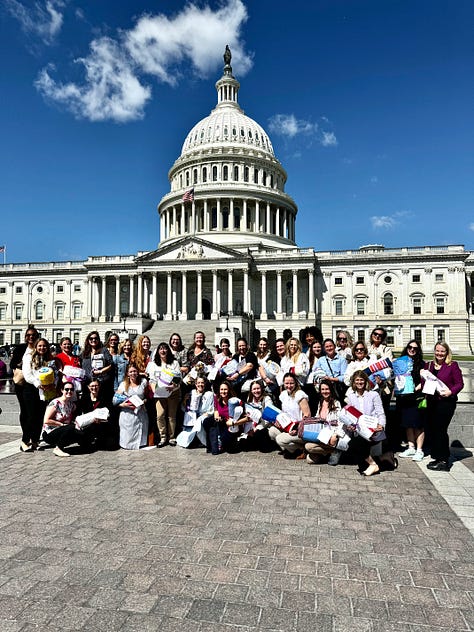
It was a powerful couple of days in our nation’s capitol, but I want to be clear about why it was so powerful.
The messages that live on each of these quilt squares didn’t originate on the streets of D.C. Most of them didn’t come from the neighborhoods in Dallas or Los Angeles or Pittsburgh.
The Peace by Piece campaign would not have been possible unless the women of rural America putting their hands to work in a way that is most natural to them — employing the skill of handicraft in defense of the Constitution.

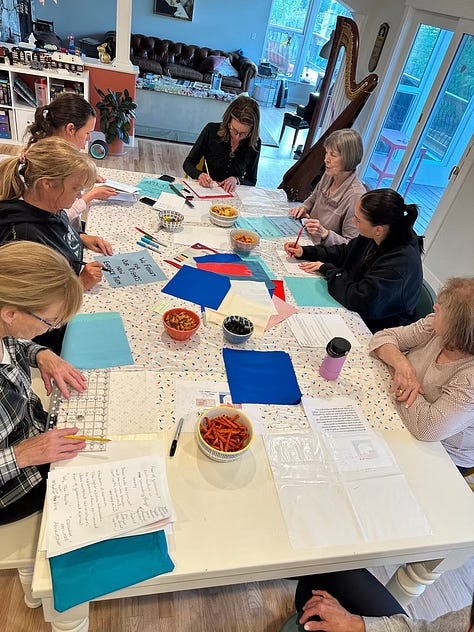





Rural communities, gather your people.
Hate has never inspired much effective policy. So let’s get busy being Americans who unite around solutions.
The battle for democracy may be fought in major cities, but the war is going to be won in the back yards and around the kitchen tables of our small towns.
Lauren Pinkston is a researcher with Freedom Business Alliance. She has a PhD from Clemson University and her research pairs human trafficking crises with sustainable business models. She is a specialized consultant for social enterprises, nonprofits, and anti-trafficking initiatives focusing on creative solutions to global and domestic social justice issues. She hosts the "Upwardly Dependent" podcast and writes at her on newsletter, The Mindful Middle. Find out more on her website and follow her on Instagram at @laurenmpinkston.





